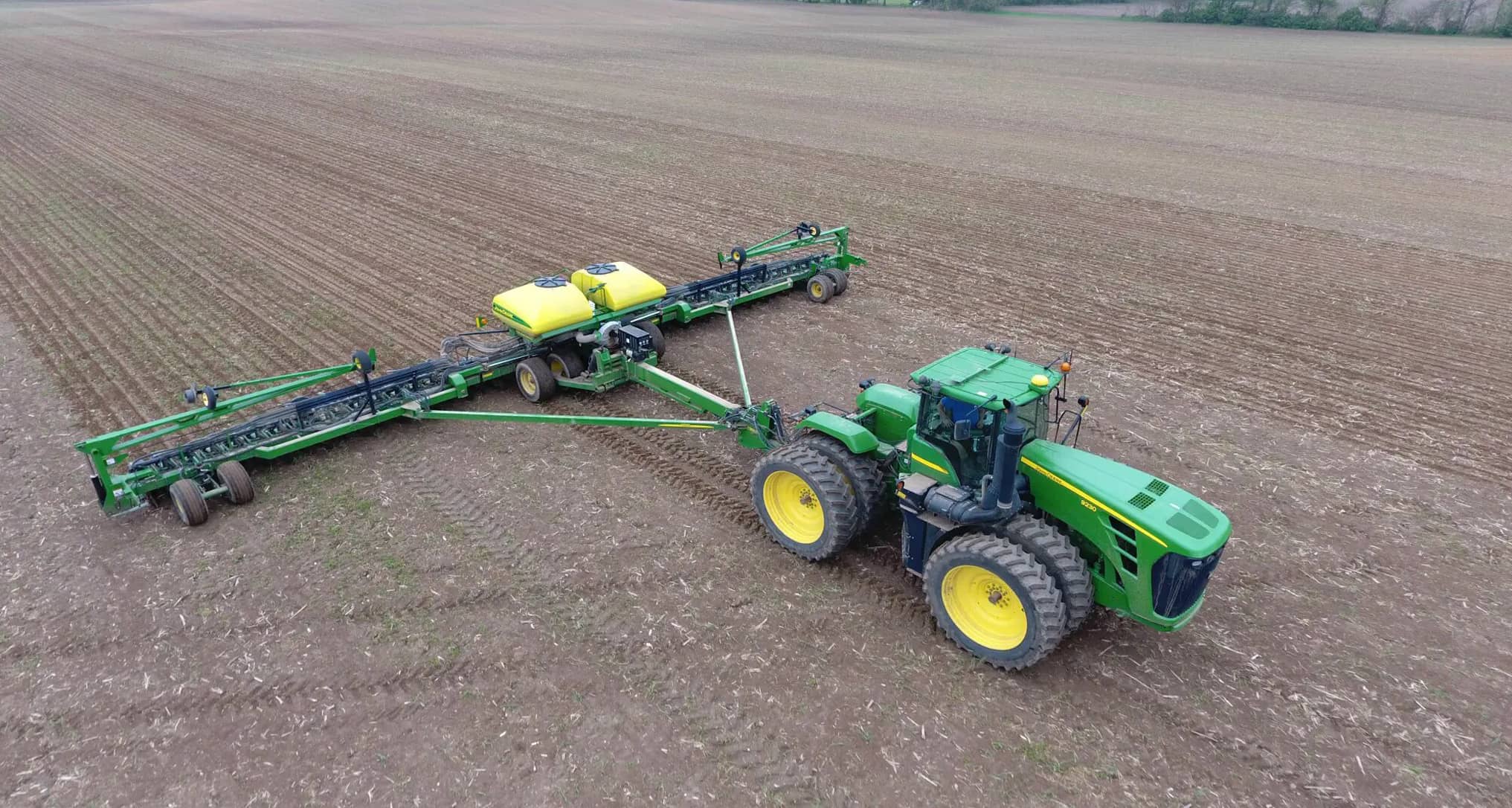Today’s farming tractors and equipment come with more technology than the cars on the road today. This makes it a challenge for farmers to repair farming equipment themselves. John Deere and other large farming equipment manufacturing corporations are limiting a farmer’s right to make repairs themselves, sparking backlash from mechanics, technicians, farmers, and even some politicians.
Over the last few years, farmers have been pushing for the “Right to Repair”, with proponents arguing that farmers cannot successfully repair their own equipment without access to the equipment’s diagnostic network and needed diagnostic software. While farmers feel confident in their abilities to fix roughly 95% of all equipment failures, this still has not stopped equipment manufacturers from restricting their access to the needed diagnostic software to do so.
The Right to Repair
According to Bloomberg Businessweek, Kevin Kenney is leading a grassroots movement to fight for a farmer’s right to repair their own equipment, bypassing potential delays in planting or harvesting and avoiding expensive repair bills from the OEM dealers. However, these large corporations say that farmers do not have the right to access copyrighted software that controls nearly every facet of their equipment. Kenney argues that these software barriers and restrictions create corporate monopolies and nearly destroy the ethos of resiliency and self-reliance that American farmers have passed down through the generations.
Agricultural equipment manufacturers argue that they invest considerable resources in developing cutting-edge technology, improving tractor functions and features. Granting access to the needed diagnostic software would stifle that innovation. They further argue that if farmers have access to intellectual code, there is no way to ensure customer data safety. Furthermore, John Deere and other equipment manufacturers are concerned that they will lose the ability to continue research and development innovation. This innovation has increased farming productivity, but it comes at the cost of operational control for the farmers themselves.
The Data Collected
The data that these big firms collect can be alarming. Anything a farmer does with each piece of modern equipment is noted in the onboard computer and then uploaded to the cloud via a cellular transmitter. These movements include everything from opening the cab door to each stop and start. John Deere argues that each piece of data collected maximizes productivity levels, and allowing farmers to get involved with these onboard software systems would further complicate matters.
According to Stephanie See, director of state government relations for the Association of Equipment Manufacturers, the right to repair isn’t about making necessary repairs but rather the right to modify the machines.
Making Changes
The Right to Repair debate has been going on for decades. For farmers, having the right to repair their equipment means cutting back on costs associated with remote service calls from the dealer at their farm, or worse, having their tractors towed to dealer repair shops for service. To maximize uptime and the criticality of having equipment available for planting and harvesting times, farmers need to repair equipment while out in the field. Having the technology to do so quickly and safely is important to them. However, many have taken it upon themselves to make modifications to their equipment. These modifications have been everything from battery upgrades to disabling specific emission-control systems – everything manufacturers are trying to avoid by not giving farmers the rights to repair. Still, right-to-repair legislation could lead to more independent mechanics and technicians who can make repairs quickly and easy, reducing the risks of modifications and the disablement of specific controls.
Standing Up for Farmers
Jaltest diagnostic software for farm and agricultural equipment covers 65 brands, providing farmers with the crucial diagnostic software needed to correctly repair and maintain their equipment, which will reduce repair bills, increase uptime, and empower farmers to be more self-reliant. As a Jaltest diagnostic tool distributor, Triad Diagnostic Solutions understands how important it is for farmers to be able to make repairs on their own. Self-sufficiency has long been a part of the farming lifestyle. As technology advances in tractors, making them safer, easier to navigate, and more environmentally friendly, so should the right to repair. If you’re looking for agriculture and farming diagnostic tools with a wide range of capabilities, then contact us today at (317) 939-3690.

